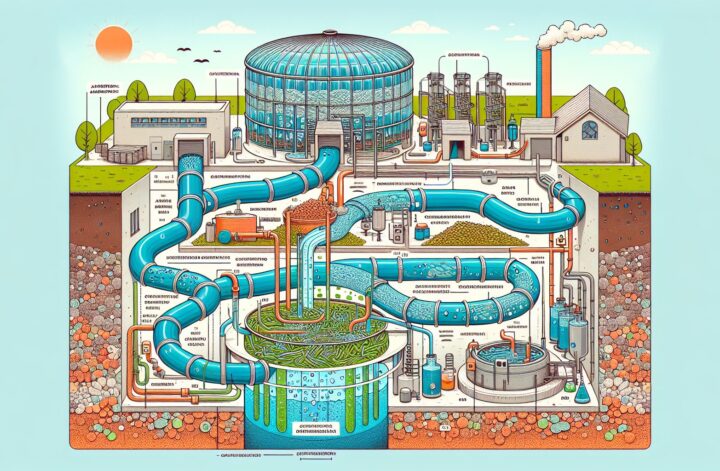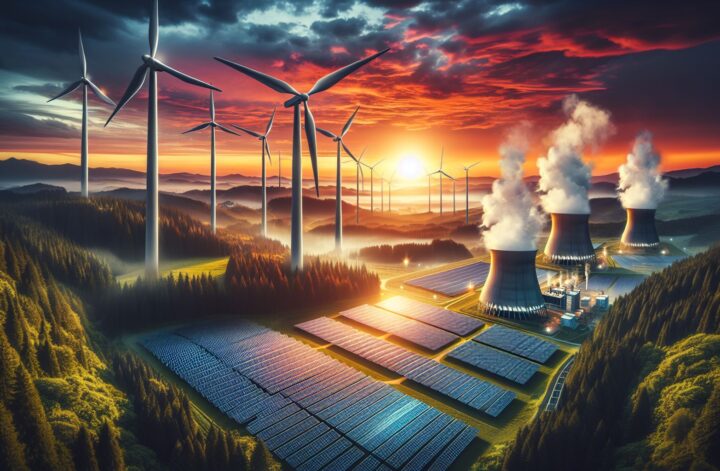Biogas production is becoming increasingly essential as the world continues to grapple with the pressing need for renewable energy. With the current urgency to shift away from fossil-based energy sources, the production of biogas is a practical and efficient solution that not only offers a sustainable energy source but also assists in addressing waste management challenges.
Understanding Biogas Production
Biogas production is essentially a process where organic waste, such as animal manure, crop residues, food waste and municipal waste, are subjected to an anaerobic digestion process to produce biogascitation needed. Biogas, a type of biofuel, primarily consists of methane, carbon dioxide, and other trace gases. This gas, when processed, can be used as a renewable energy source for cooking, heating, electricity generation, and as an automotive fuel.
Anaerobic Digestion: The Heart of Biogas Production
Central to the production of biogas is the process of anaerobic digestion which involves four stages: Hydrolysis, Acidogenesis, Acetogenesis, and Methanogenesis citation needed.
Hydrolysis: During this stage, complex organic materials are broken down into simple sugars, amino acids, and fatty acids by the action of enzymes.
Acidogenesis: The second stage, acidogenesis, sees the production of volatile acids and other byproducts due to the further break down of products from the hydrolysis stage.
Acetogenesis: The Acetogenesis stage involves the conversion of volatile acids from acidogenesis into hydrogen, carbon dioxide, and acetate.
Methanogenesis: The final stage is methanogenesis where methanogenic bacteria convert the end products of the acetogenesis stage into methane, water, and carbon dioxide.
Advantages of Biogas Production
Biogas production delivers a host of benefits that range from reducing greenhouse gas emissions to rural development and energy security citation needed.
Biogas as a Renewable Energy Source: Biogas generated from anaerobic digestion processes can be converted into usable energy that helps mitigate reliance on fossil-based energy sources and aids in promoting energy independence. Furthermore, biogas generation is a constant process, which makes it a reliable and predictable source of energy.
Waste Management: Anaerobic digestion transforms organic waste into a valuable resource. Thus, it effectively assists in waste management, particularly in places with significant agricultural or food processing activities.
Reduction of Greenhouse Gas Emissions: As biogas captures methane – a potent greenhouse gas – it significantly contributes to mitigating climate change.
Potential Challenges in Biogas Production
While the advantages of biogas production are many, there are potential challenges that need to be considered, such as the inhibition of the anaerobic digestion process due to ammonia or sulfide toxicity, the need for trace element supplementation, and stringent quality requirements for biogas upgrading to natural gas standards citation needed.
The Future of Biogas Production
The future of biogas production appears bright. As the world continues to seek solutions for renewable energy and effective waste management, biogas production becomes increasingly relevant and important. Yet, to fully exploit the potential of this sustainable technology, there’s a need for more research, favorable policies, and financial incentives. Thus, all stakeholders must collaborate to make biogas production a significant part of our renewable energy mix.
Sources
[1] Anaerobic Digestion – EESI
[2] Anaerobic digestion – Wikipedia
[3] What Is Biogas Energy & How Is Biogas Made? – Conserve Energy Future




